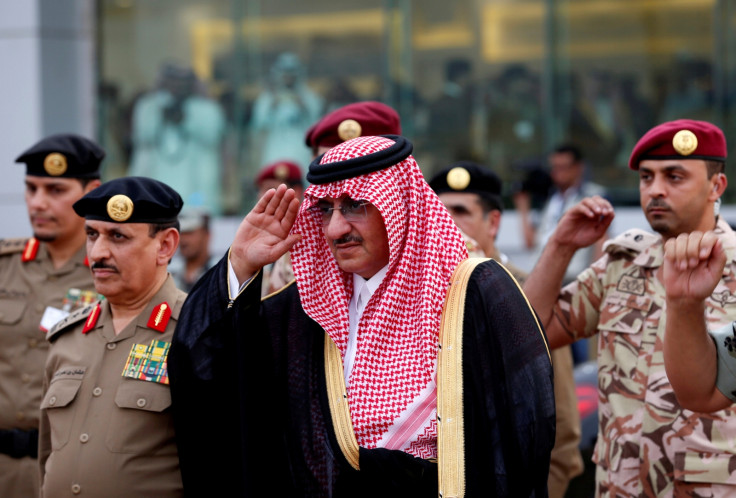Deposed Saudi crown prince allegedly kept under house arrest
Restriction placed on Muhammad bin Nayef reportedly to give space to successor to consolidate his power.
Saudi Arabia has allegedly banned its newly deposed crown prince from leaving the kingdom and confined him to his palace in what is believed to be a step from the royals to restrain him from creating any potential opposition for the new crown prince.
The movements of Muhammad bin Nayef have been restricted since Mohammed bin Salman was appointed as the Crown Prince and deputy prime minister of the kingdom, four current and former American officials and Saudis close to the royal family said on condition of anonymity, the New York Times reported.
Reports say that the personal guards of the former crown prince, who was also the head of the powerful internal security services, have been replaced with the guards loyal to new heir bin Salman.
"If he is seen as benign, this will change quite quickly. I suspect they don't want him jetting off to Washington in a bad mood and telling anyone, even our allies, the state secrets," an official said.
"There is too much risk in letting a disgruntled figure talk at a time like this."
The 57-year-old is reportedly not the only one to be put under watch; his daughters have also been asked not to leave the palace without any further announcement. A former official said that one of his married daughters was told that her husband and their child could leave their home while she had to stay.
However, senior Saudi officials have denied bin Nayef's confinement, saying it was "not true at all. It's just in the changeover period. MBS [bin Salman] does not want to take any risks. It is not house arrest. Nothing like that at all," one official said.
Bin Salem was appointed as the new crown prince of Saudi Arabia on 21 June and it was seen by some as a significant move that can bring about economic changes in the Kingdom.
It was also believed that the royal shake-up in the monarchy is expected to have far-reaching implications not just for the kingdom – the Arab world's largest economy – but also across the Middle East.
The announcement of bin Salman as the successor to the throne comes amid disturbance among the Arab countries.
The volatile region is undergoing a turbulent period after key Arab states led by Riyadh launched a campaign to diplomatically isolate Qatar. Saudi Arabia is also facing increasing friction with Iran and is currently locked in a bitter conflict in Yemen.

© Copyright IBTimes 2024. All rights reserved.






